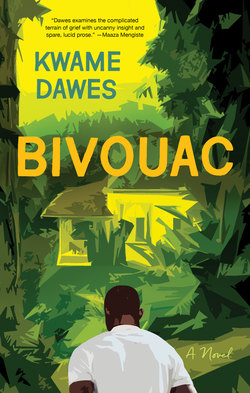Читать книгу Bivouac - Kwame Dawes - Страница 18
На сайте Литреса книга снята с продажи.
ОглавлениеUnpublished notes of George Ferron Morgan
I have really learned nothing in three months. The greater joke is that I am supposed to have learned something about the newspaper business. It is impossible not to feel despondent when someone says to you—a big fifty-five-year-old man—“Oh, you will get the hang of it.” Especially when the person is an illiterate. There are techniques but no mysteries. Putting a paper together editorially is a matter of intelligence. Getting at the news requires minimum intelligence, a lot of time, and an ability to bully and threaten. You also need to have a sense of your own importance and to press it firmly. This I cannot take on at my age. Strictly speaking, I am not interested in the news; it makes me reflect too much on the inevitability and finality of death. I am sad about having wasted so much time “working” and not writing enough. All I had wanted to do was to finish three books in 1982. Now I must aim at 1983, which means publication in 1984.
I always had doubts about the amount of work I’d put in at the Centre. I had to do it—we had to eat—which seems so melodramatic, but it was true. After the two years that I put the family through, everyone needed some fat days. So I worked. And from 1973 to 1976 I worked eighteen hours a day from Monday to Friday and six hours on Saturday and sometimes on Sunday. I also drank a lot. I stopped drinking for six months in 1974, and again after September 1979 (though, at the time of the Centre crisis, I drank heavily one night at Femi’s house with Andrew present—all rather embarrassing now). Now, I don’t drink. It is hard to know why. But I do know, if I started to drink again, what it would make me. It is enough to be unemployed, but how miserable it would be to be constantly drunk, drinking what money we don’t have—and drinking with whom? I suppose I never was one to drink unless there was a performance to make it worthwhile—a stage, an audience. Now, no one would drink with me. They would just feel sorry for me. They have fled like rats. It is as if this thing is a disease.
They shouldn’t mind. Here we are in the glorious decade—Restoration Jamaica. Now we can put off puritanical austerity and buy American apples and grapes, import good shoes from foreign, and to hell with turning a hand to make fashion. The whole thing seems like such a pathetic farce now, an absurdity. When I listen to the music, Bob Marley is dead, and it is as if everyone is smoking cocaine or that crack to make music—it is so manic. I am too old to even understand what a party is. The clowns are back in their suits and it is now fine to cheer on a light-skinned beauty queen. Everyone is getting fat. Even the good Trotskyites are buying and selling real estate. Why would anyone want to see me now? I am dead, really. Dead.
There is no mystery about their decision to sack me from the Centre. They had to defend this newspaper, but just who demanded it, I cannot guess. He had to get Burns to be the hatchet man (of course, Burns lied to me about his pleading for one year more), but they are all in my debt and they will pay. They know they owe me a great deal. And here is the pathetic irony of it all, that no one could have planned better. I am sacked for challenging the integrity of this newspaper. And who hires me to write editorials when I have nothing left, but the same newspaper? If I had the energy, I would despair at the pantomime of politics. Now, the editor is trying, as an Oxford man, to make it up to me. Imagine that—his loyalty to me as an Oxford man far exceeds his loyalty to me as a human being unfairly done in. But they don’t know how much they have destroyed me. Every single one of that lot. What they have done to my family. They have succeeded in creating some of the conditions leading to Ferron’s setback. Yes, the irony of my being here is sharp.
